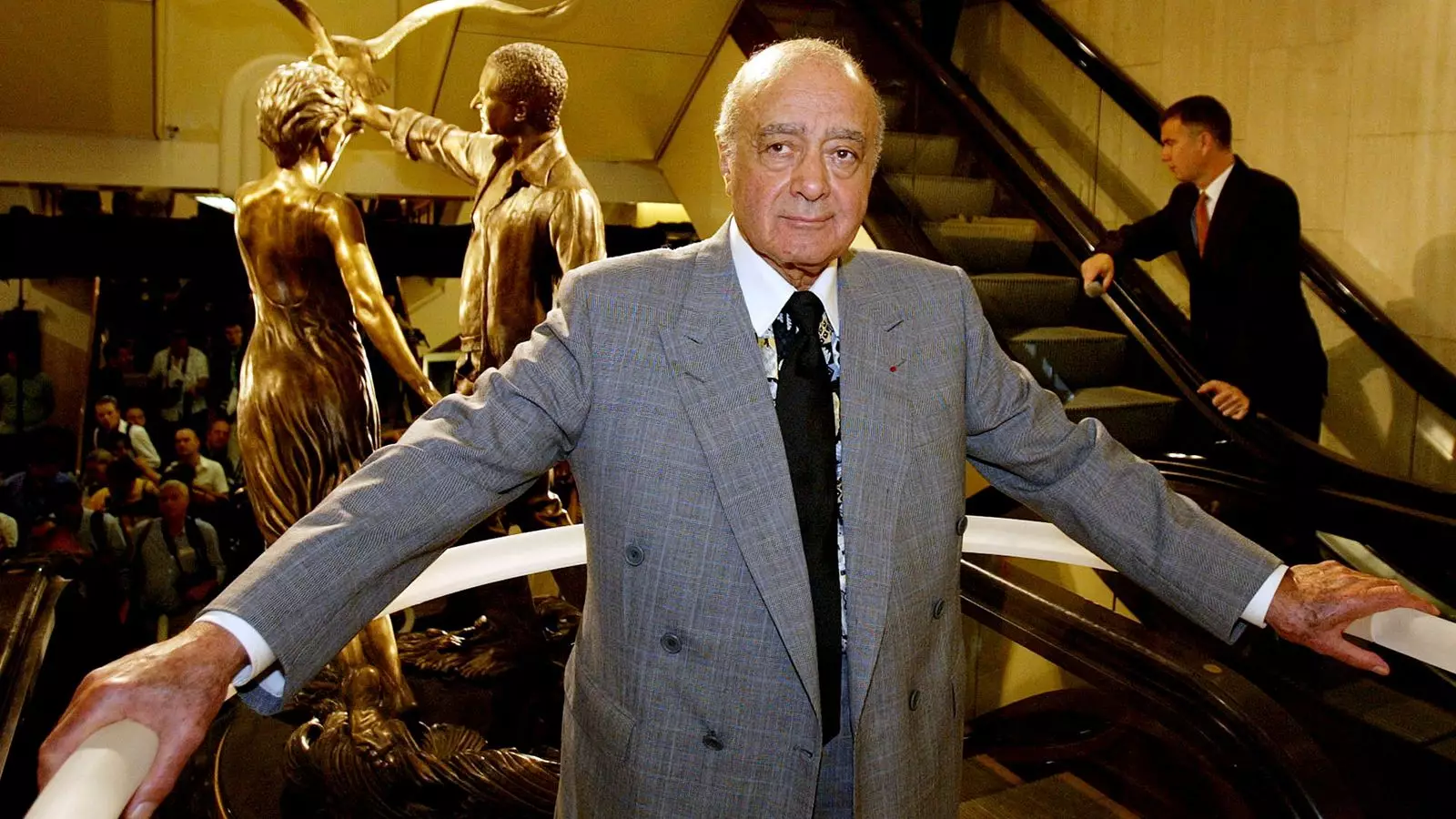The recent allegations against Mohamed Al Fayed, the Egyptian businessman and former owner of Harrods, have sent shockwaves through the public consciousness, revealing a harrowing pattern of abuse that bears disturbing similarities to other high-profile figures known for their predatory behaviors. With a focus on vulnerable individuals, the claims made by former employees describe not only sexual assaults but also a systemic failure to protect those who worked under his influence. This situation has raised vital questions about corporate responsibility and the protection of employees within major establishments.
Dean Armstrong KC, representing some of Al Fayed’s alleged victims, was forthright in drawing comparisons to notorious cases involving figures like Jimmy Savile, Jeffrey Epstein, and Harvey Weinstein. He described Al Fayed as a “predator” who cultivated an environment conducive to exploitation. During a London press conference, Armstrong asserted that the chains of abuse persist within a framework that often enables such behaviors to flourish in hush and secrecy. The victims, many of whom lacked the power to voice their traumas, are demanding justice not only for themselves but also as a stand against a broader culture of silence surrounding such abuses.
Among the voices speaking out is Natacha, who recounted her chilling experience as a 19-year-old beginning her career at Harrods. She described a time where innocence was met with terror, as she alleged she was subjected to unwanted advances from Al Fayed in his private office. Natacha articulated her fear, a sentiment echoed by many of the women who have come forward with similar stories, highlighting a shared vulnerability of being young and inexperienced in a corporate world riddled with power dynamics skewed heavily in favor of those at the top.
The revelation that many victims were specifically selected for their roles based on their youth and inexperience further exacerbates the horror of the situation. Some of these women were as young as 15, illustrating the predatory targeting by Al Fayed and demonstrating a flagrant disregard for their safety and well-being.
What compounds the gravity of these allegations is the role that Harrods appears to have played in facilitating—or at least failing to prevent—this pattern of abuse. Armstrong’s remarks about Harrods illustrate a pressing need for companies to acknowledge their responsibilities toward employee welfare. The legal actions unfolding aim to hold Harrods accountable for neglecting a safe working environment, shining a light on an “abject failure of corporate responsibility.”
In response to the allegations, Harrods has issued a statement expressing horror over the claims against Al Fayed and offering apologies to the victims. Their declaration of a commitment to change is a welcome step, but it raises questions about the sincerity and effectiveness of their measures. Will they truly prioritize employee safety moving forward, or is this merely a public relations maneuver aimed at placating a growing scandal?
As we navigate this minefield of information, what becomes evident is a pressing call for justice—not only for the victims themselves but for a broader societal reckoning. The allegations against Al Fayed unveil a systemic issue that persists across numerous sectors where power dynamics can hinder accountability. The harrowing experiences of these women compel us to reassess the norms surrounding corporate culture and the vigilance needed to protect those who are vulnerable.
Police investigations into past allegations have yielded little action against Al Fayed, underscoring a systemic inability to confront these issues head-on. It serves as a stark reminder that even when individuals report abuses, the obstacles they face in seeking justice can often prove insurmountable. Law enforcement and corporate entities must both enhance their responsiveness and accountability structures to prevent a culture of abuse from being perpetuated.
The legacy of Mohamed Al Fayed now stands not merely as that of a businessman but as a cautionary tale of complicity, silence, and abuse. As these allegations grow and gain visibility, they signal a watershed moment where voices previously silenced are now demanding justice. It is imperative that society listens, learns, and acts rather than turning a blind eye to the predatory behaviors that persist in the shadows of power. True accountability must accompany these stories, ensuring that their painful legacies pave the way for a safer and more equitable future for all.


Leave a Reply